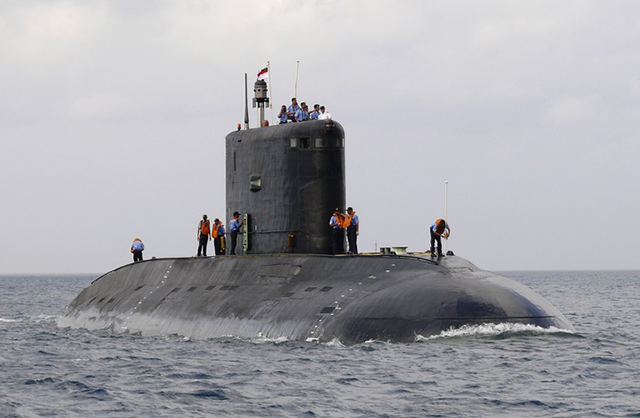Pakistan concerned at nuclearisation of Indian Ocean
Its recent test of a nuclear-capable ballistic missile has serious implications for strategic stability in South Asia

Its recent test of a nuclear-capable ballistic missile has serious implications for strategic stability in South Asia. STOCK PHOTO
Last month, India confirmed it tested the K-4 missile, which can be launched by a submarine and carry a nuclear warhead up to 3,500 kilometres away. The confirmation came after secret tests were done in March in the Indian Ocean.
Indian nuclear security measures weaker than Pakistan's: report
The move not only raised eyebrows in Pakistan but also caused concerns as India did not give prior notification to Islamabad as part of the broader understanding existing between the two
countries before conducting ballistic missile tests.
“This is a serious development. Since 1988 both countries formally or informally inform each other about such missile tests but this time India chose otherwise,” said a senior Foreign Office official while requesting anonymity.
Pakistan and India signed a landmark agreement in 2005 on the pre-notification of ballistic missile tests in order to prevent misunderstanding and misinterpretations, and promote a stable environment of peace and security between the two countries.
The official said given the sensitivity of the nuclear issue, the two countries, even before entering a formal arrangement, had a ‘broader understanding’ to inform each other about missile tests.
“This practice even continued when the two countries have not had the best relationship,” the official added.
The official said Pakistan had raised the issue with Indian authorities through diplomatic channels to explain as to why New Delhi this time ignored this understanding.
Strategic affairs expert Dr Ishtiaq Ahmed said the ‘nuclearisation of Indian Ocean’ will certainly alter the ‘strategic balance’ in this part of the region.
“In recent years, there is a shift in Pakistan’s focus from geopolitics to geoeconomics and China Pakistan Economic Corridor(CPEC) is a clear example of this paradigm change,” said Dr Ishtiaq, who is director of School of Politics and International Relations at Quaid-e-Azam University.
Marshall Islands takes on India, Pakistan with nuclear warning at UN court
“But India appears to be dragging Pakistan back to geopolitics by going nuclear in the Indian Ocean,” he explained. He viewed the Indian move not to give advance notification of the test to Pakistan as a sign of growing tension and trust-deficit between the two countries.
This all happened at a time Pakistan and India have been struggling to resume the structured dialogue following the attack on the Pathankot airbase in January. Although, foreign secretaries of the two countries met in New Delhi at the sidelines of a conference on Afghanistan, the two sides could not agree on the formal start of comprehensive bilateral dialogue.
Published in The Express Tribune, May 9th, 2016.



















COMMENTS
Comments are moderated and generally will be posted if they are on-topic and not abusive.
For more information, please see our Comments FAQ